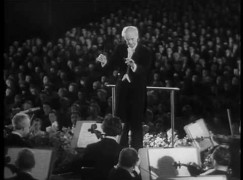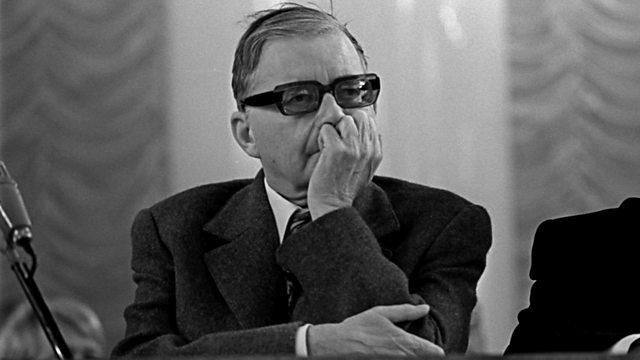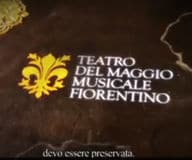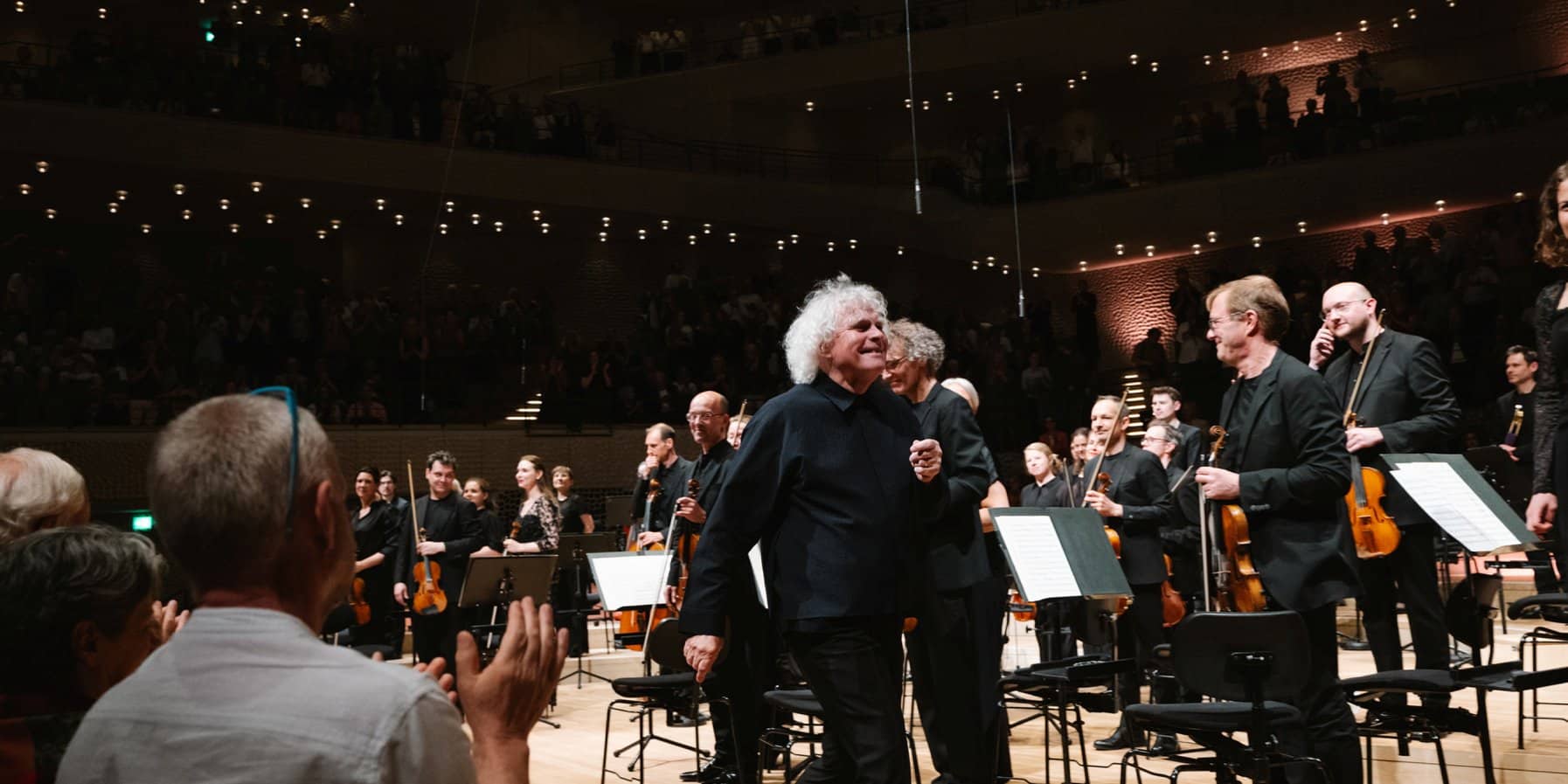‘The Paris attack is the first direct hit on music’
mainThe words belong to Bono, whose U2 concerts in Paris were cancelled in the general mourning and tight security. He went on to say:
This is the first direct hit on music that we’ve had in this so called war-on-terror or whatever it’s called. It’s very upsetting. These are our people. This could be me at a show. You at a show, in that venue. It’s a very recognizable situation for you and for me and the coldblooded aspect of this slaughter is deeply disturbing and that’s what I can’t get out of my head. … I mean again we didn’t call it off. It was cancelled, honest, and I understand perfectly why. I think music is very important. I think U2 has a role to play and I can’t wait till we get back to Paris and play and that’s what I’m feeling from the messages we’re receiving from music fans is these people will not set our agenda. They will not organize our lives for us.
Good words, worth sharing.






Pop- and / or rock music are not symbols of Western civilization, but of Western freedom. Small but essential distinction.
See….this pretentious arrogance are the very reason why people get pissed off in the first place.
How on earth is Pop music not a reflection on western culture? Arent the instruments and harmonic organization all based on dodecaphonic notes? Are they singing in martian or in English?
Stop it already with pretending there is a ‘superior art’ – its bullshit and it perfectly exemplifies the problems of the West: the imperialist obsession that somehow you and your culture are better. It is in its own way as extremist as the very people that did those attacks, from the opposite way, and another way in which we as a species cannot progress.
Bono is as much (or bigger) part of the history of WESTERN (read it: W-E-S-T-E-R-N) CULTURE (read it: C-U-L-T-U-R-E) as Mozart, Beethoven or anybody you can throw at me.
And if you don’t agree, you are no different than a guy saying that X god is better than Y god and that’s why you should die if you listen to X music.
Reading with attention would have revealed that in the first comment, the word ‘culture’ was not used. It is a great advance of freedom in a modern society, that something as empty-headed and silly as pop music (the very few exceptions excepted) is accessible to all and that, in general, children are not warned against it. But it should not be claimed to be comparable to the best cultural achievements of the West. There is a difference between the capacity to make distinctions and cultural hatred, a destructive instinct which the latter comment so glaringly reveals. There is rather a relationship between such cultural hatred and the destruction by ISIS of the precious ruins of Palmyra.
Despite the indisputable fact that the overall classical market is far smaller than the market for popular music, on a strictly individual basis the top classical composers in music history have generated far greater total sales figures than some may realize. To put some perspective on this, even Ravel, who is far less performed, published and recorded than Bach, Mozart, and Beethoven, still remains the top earning musician in France (including pop musicians) almost eighty years after his death. With figures like Bach, Mozart, and Beethoven, the ticket, sheet music, and recording sales they generate today would certainly eclipse Ravel. If one could add up the dollar value of every unit (ticket, sheet music, recording) ever sold containing the names of these composers, the total would be staggering. I wonder how many modern pop musicians could even begin to compete with them.
To put an example, according to billboard magazine (google it) the 2011 world tour of U2 (bono’s band) grossed 400 MILLION. Just that year. It was (and I believe still is) the largest grossing amount in a single year of any musician in the history of the world.
Now come and talk to me about the economic value of Ravel 😉
It is difficult to compare a modern pop act with historical figures whose music has been sold, in whatever format continuously for hundreds of years to countless paying customers.
Among American orchestras alone, there might be 1000 performances of works by Mozart per year (see for example the statistics for 2008). If, for the sake of argument, each of those performances sold 1000 tickets worth 10 dollars each, you are already grossing 10 000 000 dollars (an absurdly low estimate). Now lets add in several thousand more performances from all the orchestras in Germany, Austria, the UK, France, Italy, Spain, Scandinavia, Russia, China, Korea, Japan, South America. Next, add all the 100s of opera companies large and small around the world that sell tickets for Mozart operas each year, all the string quartets, all the piano recitals, all the choral societies, etc. Gross figures in the hundreds of millions of dollars per year for gross ticket sales alone are well within reason. And Mozart has had this sort of presence long before Bono came on the scene, and, if the past two hundred years are anything to go by, will be maintaining it long after Bono has retired from the scene.
Then there are the gross yearly sales of scores, recordings (some 6000 different issues currently in the catalogue, which, even if most of them sell only a handful per year will still add up to millions of units sold, many of those units being boxed sets), new and often very expensive monographs on Mozart that are purchased not only by individuals but also by 1000s of university libraries world wide. In short, my hunch is that the yearly gross sales for all things Mozart is extremely impressive by any standards, even compared to Bono’s alltime greatest year.
It would be very interesting to read of actual attempts to calculate such a total.
According to Billboard Justin Bieber’s “Sorry” and “What do you mean” ranks at position 4 and 5 in the “Hot 100” list for this week.
Impressive in economical terms, no doubt, and outpacing Ravel.
In musical terms this gaga land of 2 and 1/2 harmonies and a melodic inventiveness from pre school complements the content of many of today’s commercial TV stations, whose programs aim straight for the lowest common denominator and sometimes barely rise above idiocy levels.
I would mildly suggest to urge some caution using sales figures as a defining indicator for quality.
No, actually I’ve studied the period of music in Vienna 1780-1806 in depth. Don’t need any trashy films, thanks.
You remind me of Wilde’s definition of a cynic: a man who knows the price of everything and the value of nothing.
I don’t much see the point in comparing apples and oranges. U-22 has been phenomenally successful, and innovative. Their achievements have been remarkable.
But all this narking between the “classical snobs,” as Alvaro would have them, and the philistines, as some of he others would have him, is ignoring the point being made by an artist who has tremendous street cred as a humanitarian. Like him or not, as an artist or personally, Bono has been out there, fighting the good fight, for a long time. And he made an eloquent point — not the only, perhaps not the most important, point about Friday night, but one that actually cuts to the heart of this particular set of attacks.
IS must be chortling about the Alvaro-Borstlap rumble. While they attack people at play, the victims hiss over the nature of the play.
You are superimposing a modern-day value-judgment of what you believe ‘classical’ music to be, onto music composed in eras which had no understanding of such a term.
Mozart did not compose ‘classical’ music. He composed popular music – music which relied for its commercial success on its popularity with the public.No concert/opera tickets – no money, as Mozart found to his cost when Austro-French wars brought the music industry in Vienna to a standstill. Of course, there were ‘academic’ composers from those days too… but we rarely listen to Fux much nowadays. Our dear friend Jaypee is venting about Fux further below… or at least, I *thought* it was ‘Fux’ that he’s screaming about?
Bear in mind that Mozart died in abject poverty. All the after-the-fact royalty tallies will not bring him back. Like many musicians who rely on a fickle public for their livelihood (unlike Haydn, who paid a different kind of ‘price’ in his creativity for being the liveried serf of the Esterhazys) Mozart’s career hit the buffers.
You’ve been watching Amadeus again, haven’t you?
You are clearly trained as a historian, and are absolutely correct in pointing out that there was no such thing as classical music in Mozart’s time. Needless to say, they did not have distinctions such as classical and pop, or even art music and entertainment music. In those days all music was, as a general rule, functional, and was considered by commentators to be romantic in principle (which historians have known for a long time but was not recognized in the categories we all grew up with). The new six-volume Oxford History of Western Music makes the latter point clear as much as it categorizes Mozart and Haydn as the first romantics. The beginning of a trend? Who knows?
Historical categories do not last forever, as we all know. We no longer call Bach gothic, for example, and the term Baroque has only been used since about the 1950s (it was not in the Grove Dictionary before the fifth edition), The peculiarly 20th C distinction between classical and pop will also pass away one day.
I don’t know what you have been drinking, but Mozart obviously did NOT compose popular music, because popular music in those days was not to be written, but enjoyed.
Are you seriously telling me that the commoners in parties in bars and the such partied to MOZART? Oh, I forget, people did not party in those days, little towns in the middle of nowhere maybe had no concept of music in their celebrations and traditions, right?
It may not have been called classical music, but Mozart composed for the courts and rich elite patrons, not for Gunther the guy who cleans the street.
Somehow people have the mistaken attitude that These guys were actually popular in the past, which is BS. A guy raising sheep in the middle of the alps in the 18th century had NO F@#$ IDEA about your composers and your little insular world, which in that time – literally – was a handful of people.
Just now the world is approximating a ratio of 50/50 between people who live in cities vs. in the fields, 200 years ago the ratio must have been 90% farms 10% cities, so don’t give me the B.S. that these guys were somehow “famous”. For the general population hey were probably even more unknown than they are now.
Oh, but I forget – “commoners” don’t matter, right?
Alvaro, scholars know quite a lot about the common music of Mozart’s time. Consequently we have a great deal of insight as to how common idioms are woven into the fabric of his music. Mozart’s musical idiom as a whole would be inconceivable without the sound of the Ländler, contradance, pastorale, hunting horns, alphorns, musical clocks, bagpipes, barrel organs, janissary music, and the like. Same with Beethoven. If either of them were to have graced a country inn with their presence, they most assuredly would have found a plentiful supply of music to draw on from their vast outputs that would have pleased the locals immensely. Or they would have simply improvised it, so well versed were they in the common idioms of the time.
Have you no ears?
Do you really have to comment on everything you read? Can’t you just say “I don’t like it” and go on with your life instead of showing again and again what an arrogant, pompous and vain, not to mention ignorant, person you are,?
So you don’t like modern music and pop music… So f***ing what?
Has someone named you president of musical taste?
I too was raised a cultural snob. Fortunately, I grew out of it, and learned to embrace and celebrate a broad range of musical creativity.
Making common sense distinctions has nothing to do with snobbery.
No it hasn’t, and people who like rock do it all the time. That’s OK, for some reason.
Amadeus is an entertaining film. But my extensive research into Music in the Austrian Empire was conducted in Vienna and Graz, thanks. No need for your film.
In the words of the German protestant pastor Martin Niemöller, jailed by the Nazis:
When the Nazis came for the communists,
I remained silent;
I was not a communist.
When they locked up the social democrats,
I remained silent;
I was not a social democrat.
When they came for the trade unionists,
I did not speak out;
I was not a trade unionist.
When they came for the Jews,
I remained silent;
I wasn’t a Jew.
When they came for me,
there was no one left to speak out.
Just listened to Bono for the first and last time…
U2 are international stars of today’s entertainment industry. People go to U2 concerts to enjoy, participate, and be uplifted.
U2 is more successful in this regard than the Berlin Phil, the LSO or any Opera company you care to name. Their venues hold more (by orders of magnitude), their concerts are longer, and nobody cares if you chat with (or scream at) your companion during the concert.
U2 doesn’t need to pass the test of time. It glories in the test of the moment.
“U2 doesn’t need to pass the test of time. It glories in the test of the moment.”
That is perfectly true. The point is, “the moment” is not the only valid test.
It has already established long ago that a quick general success is a valid assessment of mediocrity, conformity or just crap.
Like, for example….mhhhh….your music?
From a financial point of view, I would LOVE to write crap, but no, that talent has not been given to me, alas.
Bono is wrong. In 2002 several hundred people were taken hostage in a theatre in Moscow by Chechen terrorists.130 hostages died. The attack on the theatre happened during a performance of Nord-Ost which is a musical theatre production.
Other musicians have been attacked or killed under different circumstances. I am not sure if any of these attacks are seen as terrorist attacks. The attackers have often been mentally unstable persons with unclear motives.